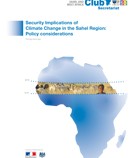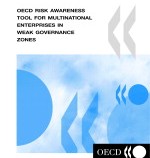Description
The OECD groups 30 member countries sharing a commitment to democratic government and the market economy. With active relationships with some 70 other countries, NGOs and civil society, it has a global reach. Best known for its publications and its statistics, its work covers economic and social issues from macroeconomics, to trade, education, development and science and innovation.
The OECD plays a prominent role in fostering good governance in the public service and in corporate activity. It helps governments to ensure the responsiveness of key economic areas with sectoral monitoring. By deciphering emerging issues and identifying policies that work, it helps policy-makers adopt strategic orientations. It is well known for its individual country surveys and reviews.
The OECD produces internationally agreed instruments, decisions and recommendations to promote rules of the game in areas where multilateral agreement is necessary for individual countries to make progress in a globalised economy. Sharing the benefits of growth is also crucial as shown in activities such as emerging economies, sustainable development, territorial economy and aid.
Dialogue, consensus, peer review and pressure are at the very heart of OECD. Its governing body, the Council, is made up of Representatives of member countries. It provides guidance on the work of OECD committees and decides on the annual budget. It is headed by Donald J. Johnston, who has been Secretary-General since June 1, 1996.
Source:
Categories
International / Intergovernmental Organisation





